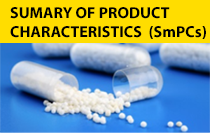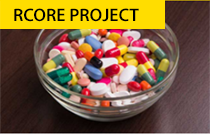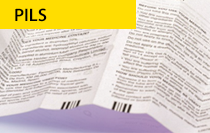
Report Adverse Reaction

Approved fees Schedules

Products Recall And Alert

For Stakeholders

Submit a Complaint

FAQs

Submit Advert Application

Submit Advert Application

Consumer Education
News & Events
Latest News
2024-04-17 00:00:00
Ghana�s COVID-19 Safety Monitoring Effects Receive Global Acclaim2024-04-05 00:00:00
FDA AND AFROCET MONTGOMERY MEETS STAKEHOLDERS2024-03-13 00:00:00
NEW FDA FEES AND CHARGES EFFECTIVE MONDAY 18th MARCH 20242024-02-01 00:00:00
DRAFT GUIDELINE FOR PUBLIC CONSULTATION "FDA GUIDELINE ON IDENTIFICATION AND DATA CAPTURE FOR PHARMACEUTICAL TRACEABILITY"2023-11-17 00:00:00
JOHN OWUSU GYAPONG IS THE NEXT ARUA SECRETARY-GENERAL2023-11-17 00:00:00
FDA LAUNCHES THE NATIONAL TOBACCO CONTROL STRATEGYREGULATORY NEWS UPDATE 04
1. World Health Organisation recommends highly successful COVID-19 therapy and calls for wide geographical distribution and transparency from the originator.
The WHO made a strong recommendation for nirmatrelvir and ritonavir, sold under the name Paxlovid, for mild and moderate COVID-19 patients at the highest risk of hospital admission, calling it the best therapeutic choice for high-risk patients to date. However, availability, lack of price transparency in bilateral deals made by the producer, and the need for prompt and accurate testing before administering it, are turning this life-saving medicine into a major challenge for low- and middle-income countries.
This recommendation is based on new data from two randomized controlled trials involving 3,078 patients. The data show that the risk of hospitalization is reduced by 85% following this treatment. In a high-risk group (over 10% risk of hospitalization), that means 84 fewer hospitalizations per 1,000 patients.
2. FDA Approves First COVID-19 Treatment for Young Children
The U.S. Food and Drug Administration on the 25th of April 2022 expanded the approval of the COVID-19 treatment Veklury (remdesivir) to include paediatric patients 28 days of age and older weighing at least 3 kilograms with positive results of direct SARS-CoV-2 viral testing, who are hospitalized, or not hospitalized and have mild-to-moderate COVID-19 and are at high risk for progression to severe COVID-19, including hospitalization or death.
This action makes Veklury the first approved COVID-19 treatment for children less than 12 years of age. As a result of the approval action, the agency also revoked the emergency use authorization for Veklury that previously covered this paediatric population.
Before, Veklury was only approved to treat certain adults and paediatric patients (12 years of age and older who weigh at least 40 kilograms, which is about 88 pounds) with COVID-19.
Given the similar course of COVID-19 disease in adults and paediatric patients, the approval of Veklury in certain paediatric patients is supported by efficacy results from phase 3 clinical trials in adults.
3. Moderna says dual variant booster with Beta more effective vs Omicron than current shot.
Moderna Inc. on 19th April 2022 said a COVID-19 booster designed to target the Beta variant as well as the original coronavirus generated a better immune response against a number of virus variants including Omicron.
Moderna said the results were a good sign for the company's plans for future shots targeting two COVID-19 variants.
The company said the bivalent vaccine with Beta generated higher neutralizing antibody titres against the Omicron variant at one and six months after the shot was given than the booster of its original vaccine currently in use.
The company said it was especially encouraging that the bivalent vaccine induced higher antibody responses against variants that were not specifically included in the vaccine.
4. CDC Panel Mulls 2nd Boosters, Booster Fatigue, Vax for Kids Under 5.
Federal advisers on Wednesday 20th April 2022 stressed the need for caution in decisions about second COVID-19 booster shots and heard calls from members of the public for quick clearance of initial doses of these vaccines for children younger than 5 years. The CDC is considering what to tell the public about second booster shots with mRNA vaccinations.
The CDC asked its Advisory Committee on Immunization Practices (ACIP) to discuss second booster shots but did not ask the panel to vote on formal recommendations. Instead, the panel engaged in a broad discussion about challenges for vaccination strategy that likely will arise as the pandemic persists.
It appears that one hospitalization is prevented for every 135 people who get the first round of COVID-19 vaccinations. But only one hospitalization is avoided for every 674 people who get a first booster dose. A second booster prevents one hospitalization for every 1205 people vaccinated, according to estimates presented by the CDC.
5. Intramuscular AZD7442 (tixagevimab--cilgavimab) for prevention of COVID-19.
Severe acute respiratory syndrome coronavirus 2 (SARS-CoV-2) vaccines have curbed the transmission of the virus to a great extent. However, individuals who cannot be vaccinated, like immunocompromised persons, continue to be at risk of severe COVID-19 infection.
Results of the Phase III investigation suggest that the combination of two neutralizing antibodies against SARS-CoV-2 protects against COVID-19, without raising safety issues, in high-risk populations. The study population included adults who were more likely to have a poor response to vaccination or had an elevated level of exposure or both.
With a cut-off of 183 days after treatment administration, symptomatic COVID-19 occurred at a rate of 0.2% in the intervention group and 1.0% in the control group. Adverse events affected more than one-third of participants in each cohort but were generally mild or were moderate in nature. The trial, sponsored by AstraZeneca and the U.S. government, supports "the use of a single dose of AZD7422 (two consecutive intramuscular injections) for the prevention of symptomatic and severe COVID-19.
THE FDA MISSION
The FDA exist to ensure the safety, quality and efficacy of human and veterinary drugs, food, biological products, cosmetics, medical devices, household chemical substances and clinical trials, and the control of tobacco products through the enforcement of relevant standards to protect public health.

Subscription Management Centre












